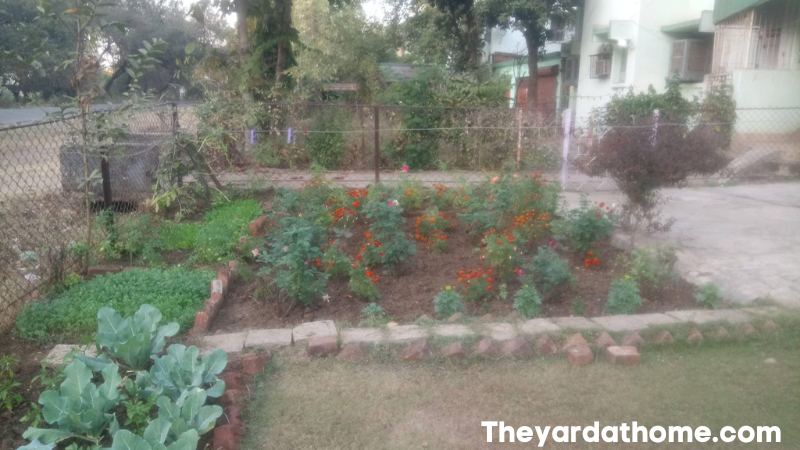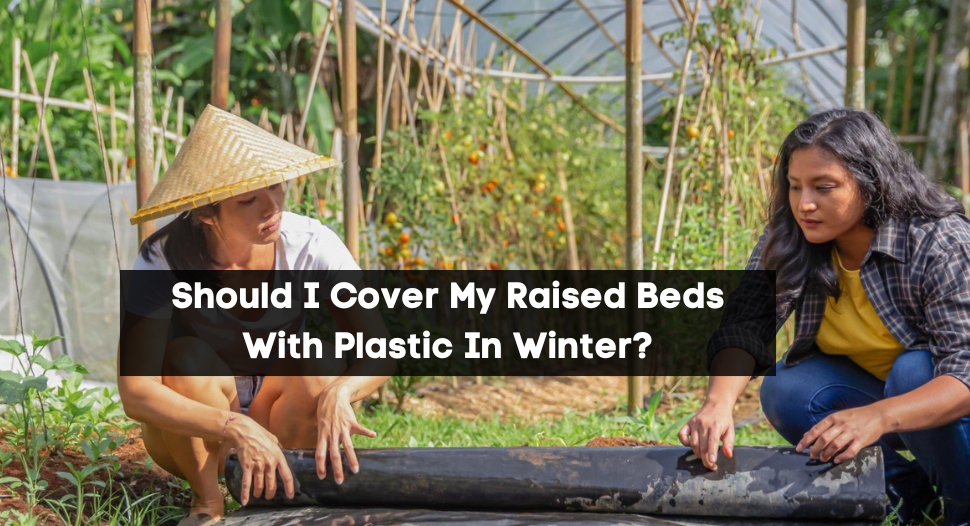Whether or not to cover your raised beds with plastic in the winter is a decision that ultimately depends on your specific plants and climate. Some gardeners cover their raised beds to protect their plants from the cold, while others do not.
The best course of action will depend on the needs of your plants and the conditions in your location.
Guide: Should I cover my raised beds with plastic in winter?
Yes, you should cover your raised beds with plastic in winter if you live in an area with cold winters.
Covering your raised beds with plastic in winter can help to protect your plants from the cold. However, there are a few things you should keep in mind.
- First, use a clear plastic sheet that will allow sunlight to reach your plants.
- Second, leave a few inches of space between the plastic sheet and the soil to allow air to circulate.
- Finally, remove the plastic sheet in the spring to prevent your plants from overheating.
The drawbacks of using plastic to cover raised beds in winter
Some of the drawbacks of using plastic to cover raised beds in winter include the following:
- Trapping heat and moisture: Covering your raised beds with plastic can trap heat and moisture, harming some plants and leading to the growth of pests and diseases.
- Inhibiting plant growth: Plastic can inhibit the growth of plants by blocking light and restricting airflow.
- Damage from wind and heavy snow: Plastic can be easily damaged by strong winds and heavy snow, leaving your plants vulnerable to the cold.
- Environmental concerns: The use of plastic can contribute to environmental pollution, as it is not biodegradable and can take hundreds of years to break down.

Method to plastic for protecting plants in cold weather
Here are some alternatives to plastic for protecting plants in cold weather:
- Cloches
- Frost blankets
- Cold frames
- Mulch
These methods can provide insulation and protection for your plants without causing the same environmental concerns as plastic.
Choosing the proper method for your specific plants and climate conditions is essential.
| Cover Type | Advantages | Disadvantages |
|---|---|---|
| Plastic | Provides effective protection from cold temperatures and heavy snow. Easy to install and remove. | Can be unsightly. May not be environmentally friendly. Can cause overheating if left on for too long. |
| Mulch, straw, or burlap | Provides some insulation and protection from extreme cold. Natural materials that are readily available. | May not provide as much protection as plastic. Can be blown away by wind or washed away by rain. |
| Row covers | Made of lightweight fabric that can be placed directly over plants. Can provide some protection from cold and pests. | May not provide as much protection as plastic. Can be blown away by wind or washed away by rain. |
| Cold frame | Enclosed structure with transparent cover that can be placed over raised beds. Provides effective protection from cold and pests. | Requires more effort to build and maintain compared to other options. Can cause overheating if not ventilated properly. |
FAQ (Frequently Asked Questions)
Is it necessary to cover my raised beds in the winter?
It is not necessary to cover your raised beds in the winter, but doing so can help protect your plants from extreme cold temperatures and heavy snow. Covering your raised beds can also prevent weeds from growing and help keep the soil warm and insulated.
How do I properly care for my raised beds during the winter season?
Protect your plants from frigid temperatures by covering them with mulch or straw to properly care for your raised beds during winter. Water your plants regularly, avoid overwatering and remove excess snow from your raised beds. Avoid disturbing the roots of your plants, and consider planting cold-hardy varieties.
Is it better to leave my raised beds uncovered in the winter?
It is not necessarily better to leave your raised beds uncovered in the winter. Covering your raised beds can protect your plants from cold temperatures and heavy snow, insulate the soil, and prevent weeds. Whether you cover or leave your raised beds uncovered will depend on your plants and the local climate.
What can I do to protect my raised beds from cold weather if I don’t want to use plastic?
Try using mulch, straw, burlap, or row covers to protect your raised beds from cold weather without plastic. You can also build a cold frame. The best option will depend on your situation and preferences.
Learn More:

